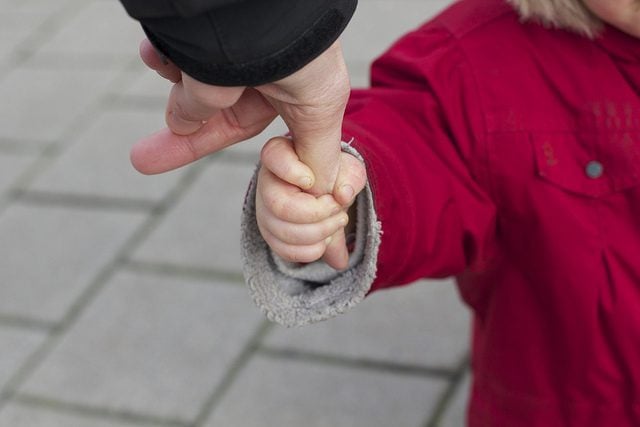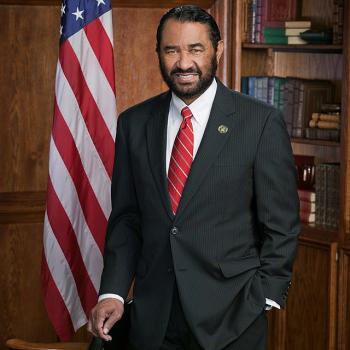
I haven’t commented on the tragic death of Alfie Evans. I’ve reached a point in my life where these brutal acts of death-dealing coercion that governments lay on suffering people sadden me too deeply.
But I am seeing good Christians veer off into the intellectual and moral weeds in their discussion about what happened. I think someone needs to clarify a bit.
Alfie Evans’ death was not euthanasia. It also was not “justified” because those who killed him said that “he was going to die anyway.” Anyone with half a brain can knock holes in that argument just by taking it to its illogical conclusion.
Another rhubarb floating around the internet is that removing Alfie from the respirator was morally justified because Catholic teaching says that we are not required to engage in “extraordinary means” to prolong life. While it’s true that Catholic teaching does contain a version of that statement, it comes with a number of caveats, and — this is the salient point — always involves consent.
What the doctors and courts did was not morally justified. It is not “covered” by Catholic teaching. Alfie’s parents not only did not consent, they fought to keep their baby on the respirator.
So, if Alfie’s death was not euthanasia, and it was not morally justified, what was it? The answer, in blunt terms, is that Alfie Evans’ death was murder by judicial fiat. Here’s why.
As I understand it, Alfie had a fatal medical condition which had deteriorated to what medical experts concluded was a hopeless situation with no possibility of meaningful recovery. He was being kept alive by use of a respirator. Everyone involved, including Alfie’s parents, seems to agree that this was the situation.
I assume that the attending physician recommended that Alfie’s parents consent to taking him off the respirator to allow him to die. If I understand the situation correctly, I believe that if Alfie’s parents had voluntarily consented to this, their actions would have fallen within Catholic teaching about using extraordinary means to extend life. However, they decided — as was their moral and legal right — not to do so.
Alfie’s parents did not consent.
At some point the hospital took it on itself to go to court and petition the court to use government force to remove the baby from the respirator against the parents wishes.
I don’t know the legalese involved in this petition. I do know that the public discussion was all about the totally spurious argument that Alfie was terminally ill and on a respirator, therefore he needed to die now. There was yip and yap about “palliative care,” but that was just talking talking, which flew in the face of the medical analysis of his situation.
By the time this argument got to court, it was almost certainly bitter, acrimonious and personal. It also almost certainly involved more than a dollop of medical hubris. The medical community’s contempt for Alfie’s parents is like a black fog wrapping itself around their high-flown claims of humanitarianism.
That contempt was mirrored by the court’s behavior. First the court set aside Alfie’s parents as the ones who must give consent and took that role onto itself. Then, when the international pro life community began working on the parents’ behalf, the judge turned rancid.
He refused to allow Alfie’s release from the hospital so that the baby could be transported to another country where he would receive continued medical care.
The fact that Alfie’s parents were dealing with the almighty egos of little men seems plain. This had probably stopped being about a baby boy and turned into a question of who was the boss long before the medical people decided to take Alfie’s parents to court. It had become an ego deal for the doctor and the hospital and it was now an ego deal for the judge.
Not long after this, Alfie’s father made a haunting plea for pro life people to dial down the rhetoric. It sounded like a hostage confession. This was duress speaking. It appeared to be a failed attempt to salve the judge’s ego and perhaps work a deal to get Alfie out from under his jurisdiction. Of all the things that happened in this tragedy, this desperate attempt to calm the judge’s rage is the most telling.
Long before Alfie actually died, his death had become a game of King of the Hill. But it probably began over other things. The truth is, Alfie’s care was becoming expensive. He was also probably becoming habituated to the respirator. Given that it took him a good while to die once he was removed from the respirator, he might have gone on for a long, expensive time if he had been allowed to stay on the machine. That fiduciary fact was probably the match that lit this fire.
But by the time Alfie died, his death had become a proving ground for judicial and medical authority. It also was a rather obvious grudge match against a couple of hayseed parents who wouldn’t accede to their betters.
The powers that be had decided that they were going to kill this baby, and what they probably saw as these crazy, hysterical parents and a bunch of foreign religious fanatics weren’t going to stop them.
Now, after public interest in Alfie and his grieving parents has begun to fade, a few commenters are still parsing the tragedy. Those who favor what the hospital and court did seem to focus on the “he was dying anyway” argument. A few of them attempt to spruce things up by quoting Catholic teaching that we are not required to employ “extraordinary means” to keep people alive.
But Alfie’s parents did not consent to have him taken off the respirator. They engaged in active and vociferous refusal. The hospital took the draconian measure of going to court to override the parents, who still fought to keep their baby on the respirator, even in the face of a court order. Interested parties outside England offered alternatives.
That is why the word “murder” rather than “euthanasia” is actually more appropriate for what happened. This was deliberate, coercive action taken for the purpose of ending a life against the responsible party’s wishes.
I do not in any way feel that the actions taken by the hospital and the court were morally justified. I believe that Alfie Evans was murdered in a deliberate act of judicial killing.

















